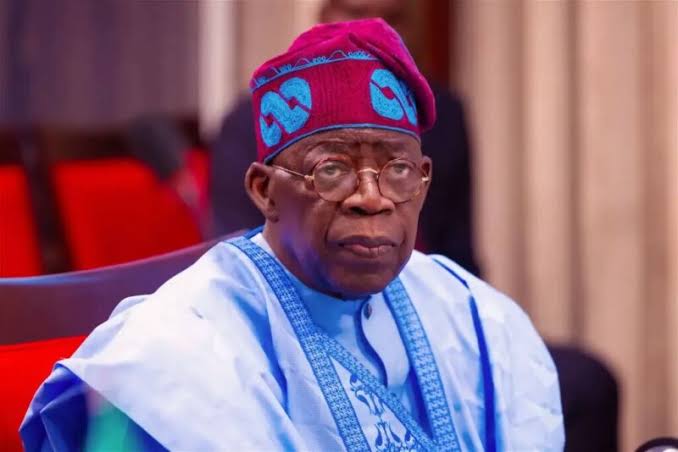Opinion: Has APC turned Nigeria into a single-party state?

10 things to know about Saint Lucia amid Tinubu’s visit.
Nigeria’s political landscape appears to be a single-party state, with the All Progressives Congress (APC) consolidating power at an alarming rate while opposition parties like the Peoples Democratic Party (PDP) crumble under the weight of defections and internal structural failures. Delta State Governor Sheriff Oborevwori’s recent defection to the APC on April 23, is just the latest in a wave of high-profile exits; governors, National Assembly members, and stakeholders abandoning their parties for the APC’s fold. The PDP’s inability to mount a credible challenge, coupled with the APC’s strategic collection of defectors, raises a crucial question: Has the APC effectively turned Nigeria into a single-party state, and if so, what does this mean for the future of Nigerian democracy?
The APC’s relentless consolidation of power
The APC’s rise to dominance is a masterclass in political strategy, fueled by defections that have systematically weakened opposition parties. Oborevwori’s defection follows a pattern with Cross River’s Ben Ayade, Ebonyi’s Dave Umahi, and Sokoto’s Aminu Tambuwal all previously jumped ship to the APC between 2014 and 2022, aligning with federal power under President Muhammadu Buhari and now Tinubu, whose influence seems to have no rival. The APC’s grip extends beyond governors, National Assembly members and party stakeholders have followed suit, with some political analysts noting it as a strategy for Tinubu’s 2027 election victory. This is no proper growth, but a planned power grab, exploiting the allure of federal resources and protection to lure defectors.
The numbers tell a clear story. The APC regained majorities in both the Senate and House of Representatives in 2019 after losing them to defections in 2018, a proof of its ability to rebound through strategic defection plots. With governors like Oborevwori joining, the APC now controls key states, positioning itself to dominate the 2027 elections. The APC’s dominance threatens to copy the PDP’s 16-year rule, which was called a “political monopoly” until the APC’s rise in 2013, except this time, the opposition is too fractured to fight back.
RELATED STORIES
Is protesting a democratic act? Criticizing Nigeria’s repression
Defection season: Who do Nigerian politicians really serve?
Osun PDP vs APC Crisis…see 5 major party power tussle that has claimed lives in Nigeria
PDP’s collapse and its failure to challenge
The PDP’s inability to counter the APC’s rise is a self-inflicted wound, rooted in leadership failures and ideological drift. Once Nigeria’s dominant party from 1999 to 2015, the PDP has been in shambles since its 2015 presidential loss, increased by internal factionalism. Atiku Abubakar, Bukola Saraki, and Tambuwal’s 2014/2015 maneuvers fractured the party, Oborevwori’s defection, predicted possibly followed by Umo Eno and Fubara, underscores the PDP’s failure to retain loyalty, leaving it a shadow of its former self.
The PDP’s lack of a cohesive opposition strategy is glaring. Despite public unhappiness with Tinubu’s policies like the subsidy removal that spiked fuel prices to over N900 per liter, the PDP failed to capitalize on the 2024 “End Bad Governance” protests, where multiple civilians were killed. Its leadership, mired in power struggles like the Atiku-Wike feud, has no clear vision to rally Nigerians, as political analysts notes Nigerian parties’ poor ideological standard. This which has allowed the APC to dominate without strong challenge, a dangerous precedent for a democracy that thrives on competition.
What single-party state could cost Nigeria’s democracy
The APC’s unchallenged dominance is a direct threat to Nigeria’s democratic health. A single-party state, even if not formalized, reduces political competitions that ensures government’s responsibility and accountability. Critics have warned consistently that a weakened opposition leads to unchecked governance, a risk Nigeria cannot afford with its high inflation rate and multiple insurgency attacks. This trend also prevents public trust in democracy. The 2019 and 2023 election’s fraud allegations and Tinubu’s 2023 victory with a mere 37% vote share already dented confidence. Now, with the APC’s dominance, reflects a growing public doubt that Nigeria’s democracy is a mirage, just a game of defections, not representation. When opposition parties like the PDP fail to challenge, citizens lose their voice, leaving the APC free to govern without scrutiny.
Final take
Nigeria stands at a democratic precipice. The APC has all but turned the nation into a single-party state, capitalizing on the PDP’s failures and mass defections to strengthen its grip. This is no democracy, but dominance because others are failing. For Nigeria to reclaim political duality, the PDP and other opposition parties must rebuild, offering clear alternatives to the APC’s rule. Citizens, too, must demand accountability. Nigeria’s democracy deserves competition, not consolidation. The APC’s triumph must be a wake-up call not a final chapter for opposition and the nation’s democratic future.

